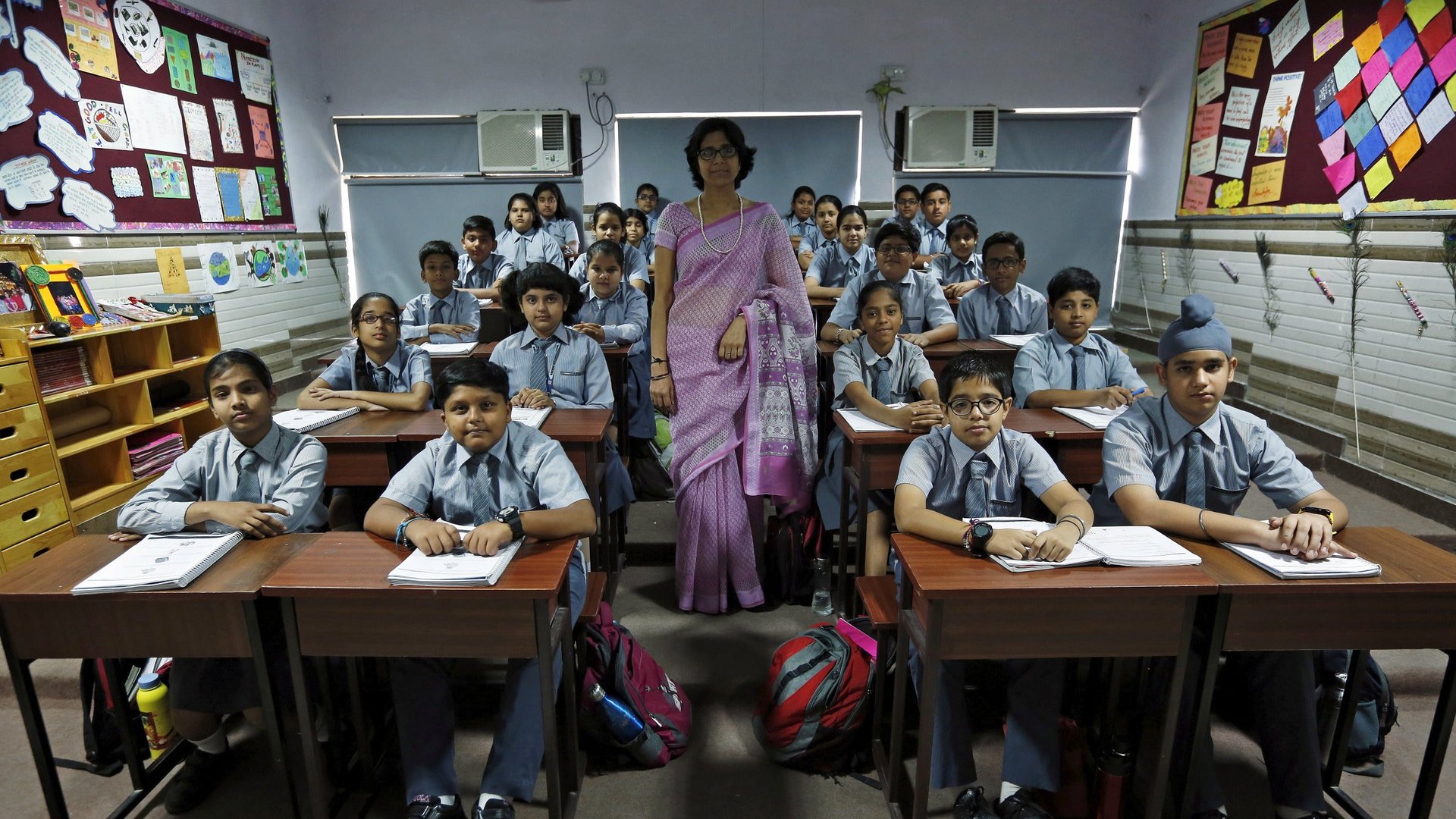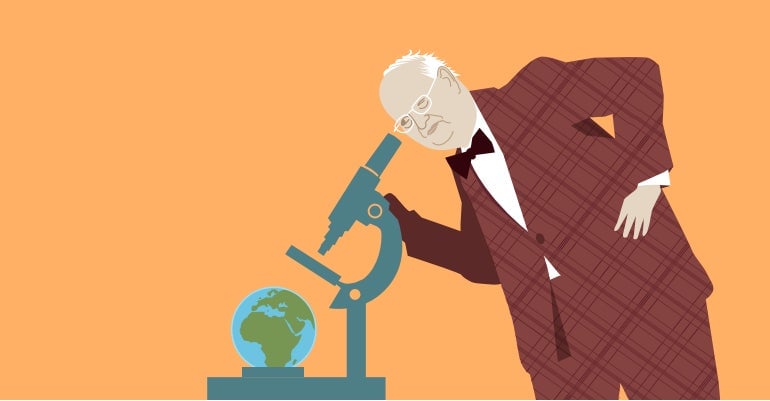Angus Deaton’s Nobel is a victory for globalization—and raises hard questions about it
You are what you eat. And when it comes to economics, you are, mostly, the goods and services you consume.


You are what you eat. And when it comes to economics, you are, mostly, the goods and services you consume.
This year’s Sveriges Riksbank Prize in Economic Sciences has been awarded to Angus Deaton, an economist who more than any other has helped us understand just why—and what—different people are consuming, mostly by simply asking them.
In a world where we increasingly measure welfare based on what we can consume, Deaton has given policymakers important tools to boost prosperity, particularly in poor countries, while arguing—sometimes controversially—that the world’s poor are in a far better place today than it was decades ago.
And his obsession with testing theories against data to understand the gaps in researchers’ description of the economy puts him firmly in line with the recent Nobel trend in recognizing those who complicate traditional models.
Bringing individuals back to the economy
His first major contribution recognized that aggregate measures of national consumption don’t accurately predict the behavior of individuals. It may sound obvious today, but it was controversial when Deaton began exploring the issue in the early 1970s.
The need for an accurate model is important because lawmakers considering consumption taxes, subsidy programs or tariffs on foreign goods need to see how their decisions would affect what people.
Deaton’s insight was that models needed to account for heterogenous individuals making consumption choices not only based on the changing price of one good, but of many other goods in the market, as well as credit and demographic conditions. At the same time, they still needed to be general enough to be widely applicable across different economies.
Alongside John Mullbaeur, Deaton developed equations to more accurately describe how people would react to changes in commodity prices; this model—the Almost Ideal Demand System—became the basis for decades of work in forecasting changes in demand.
Building a national-level economic model from the individual up also made Deaton a pioneer in the area of microfoundations—the economic discipline that seeks to link data about individuals and firms to the overarching economy.
Just ask them how much they’re buying
Deaton’s work on consumption over time, the second area cited by the prize committee, flowed naturally from this interest in heterogenous individuals. Do people alway consume the same amount of their income? How does their consumption change over time?
Economists tended to think that rational individuals would save their money (reducing consumption) if they expected lower future incomes, and borrow money (increasing consumption) if they thought their future incomes would be higher. This led models to predict that consumption should vary much more than income as people sought to take advantage of future income growth. But in the aggregate, consumption varies much less than income, an observation known as the Deaton paradox.

Deaton pioneered the use of survey data to resolve this apparent contradiction, developing methods that allowed researchers to understand how age cohorts spent money when faced by changes in economic conditions. His research was able to identify that varied individual reactions to income shocks—as some incomes increase and others go down—tend to wash out in the aggregate, building a clearer picture of unequal consumption in the economy.
This matters because so much of our economic growth is based on personal consumption spending. When economists seek to understand how a tax cut might boost the economy during a recession—as the US did during the Great Recession—they are relying on assumptions about how that money will enter the rest of the economy through increased consumption.
Who is poor, anyway?
Deaton is by far best known for his work on understanding poverty and consumption in developing economies. Comparisons of poverty in different economies are a fraught business, and Deaton argues that simple and even purchasing-power adjusted currency exchange rates fail to capture the full context of what it means to earn $1.90 a day—the World Bank’s new poverty measure—in a poor economy.
In 2005, when economists updated poverty measures with new exchange rates, they added 500 million people to the ranks of the global poor. But Deacon argues (pdf) that this failed to accurately track real-world conditions, mostly reflecting technical changes.
Consider the example of India, a country close to Deaton’s heart and a frequent subject for his research. As it has developed, India’s economic growth removed it from the group of poor countries used to define a benchmark level of income for the poor. Without India’s contribution, the global benchmark level was raised, in turn increasing counts of the global poor. Most of the increase came from counting more Indian citizens as poor—even though many had recently seen their incomes increase.
“In effect, India and the world have become poorer because India has become richer!” Deaton wrote.
As always, he promoted new, data-driven approaches to answering these questions, focused on using consumption measures (rather than income) to assess welfare in poor economies. Even then, there can be empirical issues. Deaton and economist Jean Drèze have written (pdf) about how Indian poverty measures based on caloric consumption became confused as more Indians performed work that doesn’t include heavy labor.
Deaton advocates for survey-based research to ask consumers for their interpretation of their relative place on the economic ladder. The results of these surveys correlate closely with income measures of poverty while, arguably, providing a more useful standard for policymakers to track.
The optimist’s warning
Deaton’s metrics for global development make him a distinctly optimistic voice about globalization, arguing that the rise in living standards for the world’s poorest has been steady, and is likely to continue in the future.
His most recent book, “The Great Escape,” makes a materialist case that modernity has allowed for greater prosperity around the world, citing rising income, consumption and increased life-expectancy in developing countries. All these figures have driven the plunge in global economic inequality.
His celebration of economic development comes despite his criticisms of foreign aid, which he argues weakens developing economy governments, making them unable to provide the kinds of critical public services—starting with the basic rule of law and scaling up to investments in research and a welfare state—that citizens of advanced economies rely upon without thinking.
The importance of a well-functioning state in Deaton’s world-view also made him an early critic of income inequality as a political problem that could undermine the success of wealthy economies. He wrote that “to worry about these consequences of extreme inequality has nothing to do with being envious of the rich and everything to do with the fear that rapidly growing top incomes are a threat to the well being of everyone else.”